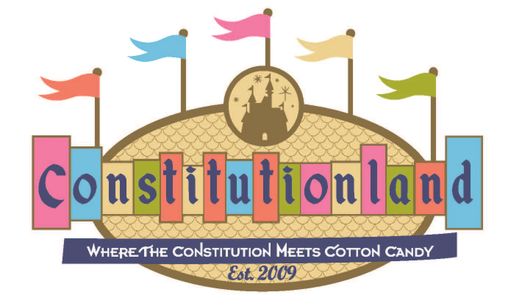Expounding a Constitution: Jurisprudential Philosophies
"...we must never forget, that it is a constitution we are expounding."
-Chief Justice John Marshall -McCulloch v. Maryland 17 US 316 (1819)
JURISPRUDENCE (n.): the science or philosophy of law.
(From Meriam-Webster's Dictionary)
"The word jurisprudence derives from the Latin term juris prudentia, which means "the study, knowledge, or science of law." In the United States jurisprudence commonly means the philosophy of law. Legal philosophy has many aspects, but four of them are the most common. The first and the most prevalent form of jurisprudence seeks to analyze, explain, classify, and criticize entire bodies of law. Law school textbooks and legal encyclopedias represent this type of scholarship. The second type of jurisprudence compares and contrasts law with other fields of knowledge such as literature, economics, religion, and the social sciences. The third type of jurisprudence seeks to reveal the historical, moral, and cultural basis of a particular legal concept. The fourth body of jurisprudence focuses on finding the answer to such abstract questions as What is law? How do judges (properly) decide cases?"
(From Cornell University Law School, Legal Information Institute http://topics.law.cornell.edu/wex/jurisprudence)
TEXTUALISM
A judicial philosophy where justices look exclusively at the plain and ordinary meaning of the text (words) of the Constitution or a statute in order to reach a decision. To quote Justice Antonin Scalia “The text is the law, and it is the text that must be observed.” (From Justice Antonin Scalia, A Matter of Interpretation, p.22).
ORIGINAL INTENT
A judicial philosophy where justices look to what the framers of the Constitution or the draftsmen of any statute intended at the time of to be the effect of the Constitution or a statute. To quote Black's Law Dictionary: "The mental state of the drafters or enactors of the U.S. Constitution, a statute, or another document. A lawmaker's state of mind and purpose in drafting or voting for a measure." (From Black's Law Dictionary, Eighth Edition).
LIVING CONSTITUTION
A judicial philosophy where justices interpret the Constitution in the spirit of the founders' intent but with an understanding that the Constitution must be a living document and evolve due to changing times. Chief Justice Earl Warren, in interpreting "cruel and unusual punishment" from the eighth amendment, explains this concept well: "The [eighth] Amendment must draw its meaning from the evolving standards of decency that mark the progress of a maturing society." (From Trop v. Dulles, 356 US. 86 (1958)).
JUST RESULTS JURISPRUDENCE
Decisions reached because they are right, with reasoning used as a means to the “just” end…a dynamic, legal realist approach to jurisprudence
STARE DECISIS
A judicial philosophy where justices apply prior precedents of the Supreme Court in deciding cases. The joint opinion of Justice O'Conner, Justice Kennedy and Justice Souter in Planned Parenthood of Southeastern PA. v. Casey 505 U.S. 833 (1992) defines the importance of precedent well:
"The obligation to follow precedent begins with necessity, and a contrary necessity marks its outer limit. With Cardozo, we recognize that no judicial system could do society's work if it eyed each issue afresh in every case that raised it. See B. Cardozo, The Nature of the Judicial Process 149 (1921). Indeed, the very concept of the rule of law underlying our own Constitution requires such continuity over time that a respect for precedent is, by definition, indispensable. See Powell, Stare Decisis and Judicial Restraint, 1991 Journal of Supreme Court History 13, 16."
FUNDAMENTAL RIGHTS ARGUMENT
Argument that the US Constitution protects certain rights that are “implicit in the concept of ordered liberty,” in addition to those rights specifically guaranteed by the text of the Constitution. These are fundamental rights “rooted in the traditions and conscience of our people” and “neither liberty nor Justice would exist if they were sacrificed.” From Palko v. US 302 US 319 (1937) Justice Cardozo.
SOCIOLOGICAL JURISPRUDENCE
Having a big sale, on-site celebrity, or other event? Be sure to announce it so everybody knows and gets excited about it.
INSTITUTIONAL ARGUMENTS
(Federalism/Separation of Powers): Argument that a case is not one that the Supreme Court should decide; issues are for other branches of the government or the states to decide.
HISTORICAL ARGUMENTS
Arguments formed based on the history of institutions, practices, rules and beliefs of a society.
FOREIGN JURISDICTION ARGUMENTS
Arguments based on the way in which similar laws and practices are decided in other nations.
MORAL ARGUMENTS
Argument that a law is justified based on the collective morality of a society.
